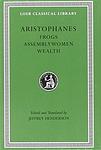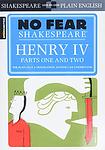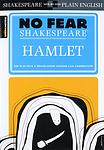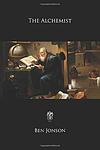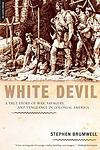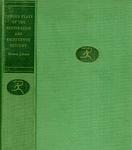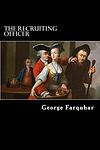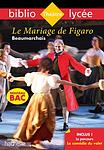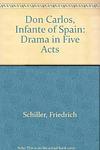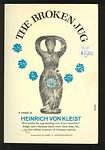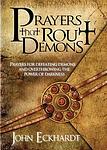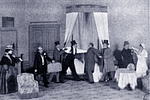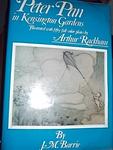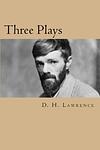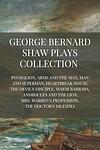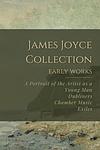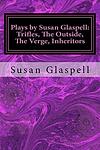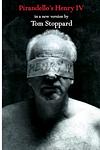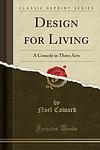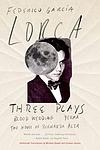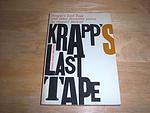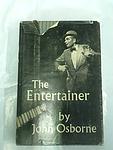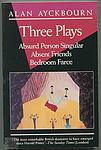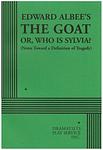From Oedipus to The History Boys: Michael Billington's 101 greatest plays
This is one of the 284 lists we use to generate our main The Greatest Books list.
-
The Persians by Aeschylus
"The Persians" is an ancient Greek tragedy that tells the story of the Persian King Xerxes and his failed invasion of Greece. The narrative focuses on the aftermath of the Battle of Salamis, depicting the mourning of Xerxes' mother and the ghost of his father Darius, who prophesied the fall of the Persian Empire. It serves as a critique of the arrogance and hubris of Xerxes and a celebration of Greek victory, while also exploring themes of war, loss, and the consequences of ambition.
-
Oedipus the King by Sophocles
"Oedipus the King" is a tragic play that revolves around the life of Oedipus, the king of Thebes, who is prophesied to kill his father and marry his mother. Despite his attempts to avoid this fate, Oedipus unknowingly fulfills the prophecy. When he discovers the truth about his actions, he blinds himself in despair. The play explores themes of fate, free will, and the quest for truth, highlighting the tragic consequences of human hubris and ignorance.
-
Bridget Jones's Diary by Helen Fielding
The book is a humorous and honest portrayal of a single woman's life in London. The protagonist, a 30-something year old woman, struggles with her weight, smoking, and alcohol consumption, all while trying to navigate her love life and career. The story is told through her personal diary entries, which include her daily calorie counts, number of cigarettes smoked, and other personal anecdotes. It's a modern take on romantic relationships and self-improvement, with a healthy dose of comedy.
-
The Assemblywomen by Aristophanes
In this ancient Greek comedy, the women of Athens, fed up with the mismanagement and corruption of male politicians, disguise themselves as men to take over the city's assembly. Once in power, they institute a series of radical reforms, including the communal sharing of wealth and property, and the requirement that the most attractive men must sleep with the ugliest women first to ensure fairness in love. The play satirizes gender roles, political life in Athens, and the utopian solutions to societal problems, all while delivering a humorous yet pointed critique of the effectiveness of democratic governance and the nature of power.
-
The Brothers Menaechmus by Plautus
"The Brothers Menaechmus" is a classic Roman comedy that revolves around the hilarious misunderstandings and chaotic events that ensue from a case of mistaken identity. The plot follows the story of two long-lost twin brothers, Menaechmus of Epidamnus and Menaechmus of Syracuse, who were separated in childhood. Unbeknownst to each other, they end up in the same city, where their identical appearances lead to a series of comedic mishaps. Friends, family, and even a wife are all deceived as the twins inadvertently swap places, causing confusion and prompting a comical investigation into apparent infidelity, theft, and madness before the truth is finally revealed and the siblings are joyously reunited.
-
The Mysteries by Tony Harrison
"The Mysteries" is a collection of poetic plays that adapt the medieval mystery plays of England into contemporary language, giving new life to the biblical stories ranging from the Creation to the Last Judgment. Through the use of vigorous, modern verse, the plays explore the intersection of faith, culture, and everyday life, capturing the essence of these ancient tales while making them accessible and resonant for a modern audience. The work maintains the communal spirit of the original cycle plays, reflecting on universal human experiences and moral dilemmas, and inviting reflection on the role of the divine in the mundane.
-
Edward Ii by Christopher Marlowe
The play is a historical tragedy that revolves around the reign of a flawed monarch whose personal weaknesses lead to his downfall. It explores the king's intense and controversial relationship with his favorite, Gaveston, which incurs the wrath of the nobility, his wife, and ultimately contributes to his loss of power. Themes of political ambition, betrayal, and the struggle for authority are central as the king's inability to manage his affections and the demands of his throne result in civil strife and his eventual violent demise. The play is a study of a ruler undone by personal failings and the ruthless machinations of those around him, set against the backdrop of the political complexities of medieval England.
-
Love’s Labour’s Lost by William Shakespeare
In this comedic play, the King of Navarre and his three noble friends take an oath to devote themselves to three years of study, swearing off the company of women. However, their resolve is quickly tested when the Princess of France and her three ladies arrive on a diplomatic mission. The men fall comically in love with the women, leading to a series of witty exchanges and playful deceptions. As the men vie for the women's affections, they grapple with the tension between lofty ideals and earthly desires. The play culminates in an unexpected turn that defers the promise of resolution, leaving the characters to contemplate the more serious sides of life and love.
-
Henry IV, Part I by William Shakespeare
This classic play revolves around the life of King Henry IV, his son Prince Hal, and their turbulent kingdom. The kingdom is in chaos due to rebellions, and the king is disappointed with his son's irresponsible behavior. The prince, however, spends his time in taverns with the amusing and deceitful Falstaff. As the rebellion against the king grows, Prince Hal shows his true potential and bravery by not only saving his father in battle but also killing the leader of the rebellion, proving himself to be a worthy heir to the throne.
-
Henry Iv Parts Two by William Shakespeare
The play continues the story of a monarch struggling to maintain his grip on the throne amidst rebellion and internal strife. As the king's health wanes, his son and heir, Prince Hal, must navigate the treacherous political landscape, shedding his wayward past and proving himself a worthy successor. The narrative juxtaposes the prince's maturation with the comic exploits of Sir John Falstaff, Hal's boisterous and disreputable companion. Themes of honor, power, and the burdens of leadership are explored as the characters confront their destinies and the looming inevitability of change.
-
Hamlet by William Shakespeare
This classic play revolves around the young Prince of Denmark who is thrown into a state of emotional turmoil after his father's sudden death and his mother's quick remarriage to his uncle. The prince is visited by the ghost of his father who reveals that he was murdered by the uncle, prompting the prince to seek revenge. The narrative explores themes of madness, revenge, and moral corruption as the prince navigates the complex political and emotional landscape of the Danish court.
-
Twelfth Night: Or, What You Will by William Shakespeare
Twelfth Night: Or, What You Will is a comedic play that revolves around mistaken identities and love triangles. The story follows the adventures of Viola, who, after being shipwrecked and separated from her twin brother Sebastian, disguises herself as a man named Cesario. As Cesario, she enters the service of Duke Orsino and falls in love with him, even as he sends her to woo the Countess Olivia on his behalf. However, Olivia falls in love with Cesario, not knowing he is actually Viola in disguise. Further confusion ensues when Viola's presumed-dead brother Sebastian arrives, leading to mistaken identities, hilarious mix-ups, and ultimately, happy resolutions.
-
The Malcontent by John Marston
"The Malcontent" is a Jacobean-era tragicomedy that delves into themes of political intrigue, revenge, and moral corruption within a court setting. The play centers around the character Malevole, the disguised and deposed Duke Altofronto, who maneuvers through a web of deceit as he seeks to expose the hypocrisy and villainy of those who usurped his throne. Through a series of satirical and darkly humorous episodes, the protagonist navigates a treacherous court filled with unscrupulous characters, ultimately aiming to restore justice and reclaim his rightful position. The work is known for its biting wit, complex characterizations, and exploration of the human condition, reflecting the moral ambiguities of the time.
-
A Mad World, My Masters by Thomas Middleton
This satirical comedy from the early 17th century presents a tapestry of London life through a series of interwoven plots featuring a diverse cast of characters, including a con artist, a lustful knight, and a cunning courtesan. The play delves into themes of deception, social corruption, and the pursuit of pleasure, revealing the vices and follies of the city's inhabitants. With a sharp wit and an unflinching eye for the absurdities of human behavior, the narrative unfolds in a series of comedic escapades, ultimately offering a biting critique of a world gone mad with greed and hedonism.
-
Macbeth by William Shakespeare
This classic play follows the tragic tale of Macbeth, a Scottish general whose ambition is sparked by a prophecy from three witches that he will one day become King of Scotland. Consumed by ambition and spurred on by his wife, Macbeth murders King Duncan and takes the throne. However, guilt and paranoia plague him, leading to a reign of terror and further bloodshed. His desperate attempts to cling onto power lead to his downfall, illustrating the destructive power of unchecked ambition.
-
Coriolanus by William Shakespeare
The play is a tragic drama set in ancient Rome that follows the life of the titular military leader, known for his valor and exceptional combat skills. However, his inability to navigate the complex web of Roman politics and his contempt for the common people lead to his downfall. After being banished from Rome due to his arrogance and the machinations of political adversaries, he seeks revenge by allying himself with a former enemy. His tragic flaw, excessive pride, and the manipulation by those around him ultimately result in a climactic and fatal confrontation that seals his fate.
-
The Alchemist by Ben Jonson
The book in question is a comedic play set in early 17th-century London, where a clever trio of con artists—Subtle, Face, and Dol—takes advantage of urban fear and superstition during a plague outbreak to swindle a series of gullible victims. Using the guise of an alchemist capable of performing miraculous transformations, the group promises wealth and power to their targets, spinning a web of deceit and exploiting human greed and folly. The play unfolds as a series of farcical episodes, culminating in the inevitable unraveling of their schemes, offering a satirical critique of human credulity and the pretensions of pseudo-science.
-
The White Devil by John Webster
"The White Devil" is a gripping and darkly captivating play that delves into the themes of revenge, corruption, and deceit. Set in 16th century Italy, the story follows the lives of two powerful families, the Brachiano and the Medici, as they engage in a web of treachery and manipulation. As tensions rise and secrets unravel, the characters are consumed by their own desires, leading to a tragic and bloody climax. With its complex characters and intricate plot, "The White Devil" explores the depths of human nature and the destructive consequences of unchecked ambition.
-
Fuente Ovejuna by Lope de Vega
"Fuente Ovejuna" is a Spanish Golden Age play that centers around the collective uprising of the inhabitants of a small village against their oppressive overlord. After enduring countless abuses, the villagers, led by a young woman named Laurencia, band together to revolt and ultimately murder the tyrannical commander. When royal authorities arrive to investigate, the villagers respond with a united front, famously declaring "Fuente Ovejuna did it," showcasing the power of communal solidarity against injustice. The play explores themes of rebellion, honor, and the strength of the collective will, and is celebrated for its portrayal of the human spirit's resistance to tyranny.
-
Punishment Without Revenge by Lope de Vega
In this classic work of Spanish Golden Age theatre, the narrative revolves around a complex web of love, honor, and vengeance within a noble household. The story unfolds as the Duke, a powerful and respected figure, discovers that his beloved son has fallen for the Duke's own mistress. This forbidden love affair ignites a tragic sequence of events, leading to an ultimate dilemma that tests the bounds of loyalty and justice. The Duke is faced with the harrowing task of upholding his honor while dealing with the conflicting emotions towards his son and his own paramour, culminating in a dramatic exploration of the human struggle between passion and duty.
-
Life Is a Dream by Pedro Calderón de la Barca
"Life is a Dream" is a philosophical allegory regarding the human situation and the mystery of life. The play follows the story of Segismundo, Prince of Poland, who has been imprisoned in a tower by his father, King Basilio, following a dire prophecy that the prince would bring disaster to the country and death to the King. Basilio briefly frees Segismundo but returns him to the tower when the prince proves violent and unruly. The story explores themes of free will, fate, power and the thin line that separates reality from dreams.
-
The Illusion by Pierre Corneille
"The Illusion" is a play that explores themes of love, betrayal, and the blurred lines between reality and illusion. It follows a contrite father who enlists the help of a magician to locate his estranged son. The magician presents the father with a series of visions that depict his son's tumultuous life as a lover and duelist. As the father witnesses these scenes, he is confronted with the consequences of his own past actions and the nature of his son's reality. The play delves into the power of theater and spectacle, ultimately questioning the nature of truth and the transformative power of forgiveness and understanding.
-
Tartuffe by Molière
This classic French play revolves around the character Tartuffe, a hypocritical and cunning man who pretends to be deeply pious and religious. He manages to deceive Orgon, a wealthy family patriarch, into believing in his piety. Orgon is so taken in by Tartuffe that he decides to marry him off to his daughter, despite her love for another man. The family works together to expose Tartuffe's true nature, leading to a series of comic and dramatic events. The play is a satirical critique of religious hypocrisy and gullibility.
-
The Misanthrope by Molière
"The Misanthrope" is a satirical play that explores the hypocrisy and corruption of French aristocratic society through the eyes of the protagonist, a man who insists on absolute honesty and despises flattery, insincerity, and social conventions. Despite his disdain for society, he falls in love with a coquette who embodies everything he detests, leading to a series of comedic and dramatic situations. The narrative ultimately emphasizes the importance of balance between truth and courtesy in social interactions.
-
Andromache by Jean Racine
The play is a tragic drama set in the aftermath of the Trojan War, focusing on the fate of Andromache, the widow of the Trojan hero Hector, who is now a captive of Pyrrhus, the son of Achilles. Pyrrhus is torn between his obsessive love for Andromache, who remains faithful to the memory of her slain husband, and his betrothal to Hermione, the daughter of the Spartan king Menelaus. The play explores themes of love, duty, and vengeance as Andromache struggles to protect her son, the last heir of the Trojan line, amidst the dangerous political machinations of the Greek victors, leading to a series of tragic events fueled by jealousy, pride, and the inescapable grip of fate.
-
The Rover by Aphra Behn
"The Rover" is a Restoration comedy that centers around the escapades and romantic misadventures of a group of English cavaliers at the Carnival in Naples. The plot weaves together the tales of love, disguise, and mischievous intrigue as the charming but rakish protagonist and his friends navigate the complex social landscape, pursuing love interests and evading the consequences of their actions. The play tackles themes of love, honor, and the social roles of women, while also offering a humorous and satirical take on the mores of the time. The narrative culminates in a series of mistaken identities and unexpected revelations, ultimately leading to marriages and reconciliations in true comedic fashion.
-
Venice Preserv'd by Thomas Otway
"Venice Preserv'd" is a tragic play set in the politically tumultuous city of Venice, where conspiracy and betrayal intertwine with personal drama. The plot centers around Jaffeir, a noble Venetian who joins a group of conspirators aiming to overthrow the corrupt government after feeling betrayed by the state. His loyalty is tested when he must choose between his allegiance to the conspiracy and his love for Belvidera, the daughter of a senator. As the story unfolds, the characters are caught in a web of intrigue, leading to a climax that exposes the complexities of honor, friendship, and the devastating consequences of political and personal treachery.
-
Love For Love by William Congreve
"Love for Love" is a classic Restoration comedy that revolves around the chaotic love lives and financial schemes of its characters. The plot centers on Valentine, a financially strapped gentleman who feigns madness to avoid paying his debts and to secure his inheritance, and Angelica, a wealthy and witty heiress who desires a man who loves her more than her money. The play humorously navigates through a series of mistaken identities, satirical engagements, and sharp-tongued repartee, culminating in a series of resolutions that pair off the characters in a traditional comedic fashion, all while delivering a biting social commentary on the mercenary nature of love and marriage in the Restoration era.
-
The Recruiting Officer by George Farquhar
The play is a comedic look at the social and sexual rivalries in a small English town during wartime. It follows the charming Captain Plume and the scheming Sergeant Kite as they attempt to recruit soldiers for the British army while navigating the affections of the local women. The story unfolds with a series of romantic entanglements, mistaken identities, and satirical takes on class and gender dynamics, culminating in a series of humorous and unexpected resolutions for the characters' various pursuits of love, social status, and military glory.
-
The Game Of Love And Chance by Marivaux
"The Game of Love and Chance" is a classic French play that delves into the complexities of love, social status, and the unpredictability of human emotions. The narrative follows the story of two young people from different social classes who, unbeknownst to one another, swap identities to observe their prospective partners incognito. Through a series of comedic misunderstandings and mistaken identities, the characters navigate the treacherous waters of love and deception. As they interact with each other's true and assumed personas, the play humorously explores themes of authenticity, romance, and the role of chance in the matters of the heart, ultimately revealing the folly of judging by appearances and the transcendent power of genuine affection.
-
The Servant Of Two Masters by Carlo Goldoni
The play is a classic Italian comedy that revolves around the clever and resourceful Truffaldino, who seeks to serve two different masters simultaneously in the hope of doubling his income. The ensuing plot is a whirlwind of mistaken identities, love triangles, and comedic confusions. As Truffaldino scrambles to keep his dual employment a secret, the characters are entangled in a series of humorous situations involving love-struck young lovers, a feisty soubrette, and a pair of stern fathers. The play culminates in a series of revelations and reconciliations that restore social order and conclude with festive celebrations.
-
La Triologia Della Villegiatura by Carlo Goldoni
"La Trilogia della Villegiatura" is a series of three comedies that satirize the habits and foibles of the middle class in 18th-century Italy as they engage in the fashionable practice of taking a holiday in the countryside. The trilogy follows a group of friends and their families as they navigate the social and romantic complexities of their vacation. Throughout the plays, the characters deal with issues of love, marriage, and social status, revealing the pretentiousness and shallowness of their behavior. The author uses wit and humor to critique the obsession with appearances and the frivolity of his contemporaries, while also exploring deeper themes of human nature and relationships.
-
She Stoops to Conquer by Oliver Goldsmith
"She Stoops to Conquer" is a comedic play that revolves around the story of a wealthy countryman, Mr. Hardcastle, who arranges for his daughter, Kate, to meet Charles Marlow, the son of a wealthy Londoner, hoping the pair will marry. However, Marlow is nervous around upper-class women, yet gets along fine with lower-class women. Kate learns of this and pretends to be 'common' to get to know him. The play concludes with Kate revealing her true identity, and Marlow, who is in love by this point, is relieved she's actually of the upper class. The play explores themes of class, courtship, and the deceptive nature of appearances.
-
The School For Scandal by Richard Brinsley Sheridan
The play is a satirical depiction of the gossip and hypocrisy found in the high society of 18th century London. It centers around two brothers with contrasting personalities, one appearing to be a model of virtue and the other a dissolute rake, and the schemes of a circle of wealthy, idle gossipmongers. The plot thickens with a series of misunderstandings, eavesdropping, and mistaken identities, all revolving around the brothers' romantic pursuits and the malicious spread of scandal. The narrative ultimately exposes the true characters of the individuals involved, revealing the seemingly virtuous brother to be hypocritical and the seemingly dissolute one to be honorable, thus critiquing the superficial judgments and moral corruption of the elite.
-
Le Mariage De Figaro by Pierre-Augustin Caron de Beaumarchais
The play is a comedic yet biting commentary on class and privilege, set against the backdrop of a single day in the life of a clever valet named Figaro, who is about to marry his beloved Suzanne. However, their plans are threatened by the Count, who desires Suzanne for himself and aims to exercise his feudal right to bed a servant girl on her wedding night. Through a series of clever maneuvers, secret plots, and humorous twists, Figaro, Suzanne, and their allies outwit the Count and other members of the aristocracy. The play challenges the social norms of the time, including the abuses of the upper classes and the rights of individuals, culminating in a celebration of love and marriage where wit and resourcefulness triumph over rank and power.
-
Nathan the Wise by Gotthold Ephraim Lessing
"Nathan the Wise" is a 18th-century play that explores religious tolerance and interfaith understanding. The story is set in Jerusalem during the Third Crusade and revolves around Nathan, a wealthy Jewish merchant, who is renowned for his wisdom and generosity. The narrative explores themes of religious tolerance as Nathan interacts with a Templar knight, a Christian patriarch, and the Muslim sultan Saladin. The story culminates with the revelation that the main characters, despite their different faiths, are all part of the same family, thus promoting a message of shared humanity and religious coexistence.
-
Don Carlos: Infante of Spain, a Drama in Five Acts by Friedrich Schiller
"Don Carlos: Infante of Spain, a Drama in Five Acts" is a historical play that portrays the intense political and personal conflicts within the Spanish royal court. The story revolves around Don Carlos, the son of King Philip II of Spain, who is in love with his stepmother, Queen Elisabeth of Valois. The narrative also introduces Marquis Posa, a nobleman who advocates for freedom, and becomes a confidant to both Don Carlos and the King. The play explores themes of love, power, freedom, and betrayal, culminating in a tragic ending.
-
Mary Stuart by Friedrich Schiller
The play delves into the tragic life of the titular character, a former queen who finds herself imprisoned and facing execution at the hands of her cousin, the reigning monarch of England. It explores themes of power, betrayal, and the struggle for sovereignty, as the protagonist confronts her impending fate with dignity and courage. The narrative unfolds through a series of intense encounters with various historical figures, each revealing the complex web of political intrigue and personal vendettas that sealed her doom. The play ultimately serves as a poignant examination of the human cost of political rivalry and the inexorable march of history.
-
The Broken Jug by Heinrich von Kleist
"The Broken Jug" is a comedic play centered around the chaotic proceedings of a village court in the Netherlands. The story unfolds over the course of a single day and revolves around the character of a corrupt and lecherous judge who is ironically tasked with investigating a case involving a broken jug. As the trial progresses, it becomes increasingly clear that the judge himself is intricately connected to the crime and the victim's family, leading to a series of humorous and satirical exchanges that expose the folly and hypocrisy of the legal system. The play is a classic example of the use of irony and farce to critique social and judicial corruption.
-
The Prince Of Homburg by Heinrich von Kleist
The play is a dramatic exploration of duty, dreams, and the conflict between personal desires and state demands. It centers on a young, impulsive Prussian prince who, despite being a skilled commander, disobeys orders during a crucial battle, leading to an initially successful outcome but unexpected personal consequences. His actions result in him facing a death sentence for insubordination, provoking a deep examination of authority, military discipline, and individual will. As he grapples with his fate, the prince undergoes a transformation that questions the nature of honor and the cost of glory.
-
The Government Inspector by Nikolai Gogol
The play is a satirical comedy that exposes the corruption and foolishness of the bureaucracy in a small Russian town. When officials mistake a lowly civil servant for a feared government inspector traveling incognito, they fall over themselves to cover up their town's numerous misdeeds. The visitor exploits the situation for personal gain, accepting bribes and enjoying the sycophantic hospitality of the town's officials, who are oblivious to his true identity. The story unfolds with a series of comedic misunderstandings and ironic twists, culminating in a final revelation that leaves the townspeople facing the consequences of their deception and moral laxity.
-
Woyzeck by Georg Buchner
The narrative revolves around a lowly soldier named Franz Woyzeck, who struggles with mental instability and social oppression. Tormented by hallucinations and subjected to inhumane medical experiments, he grapples with jealousy and existential angst. His descent into madness is exacerbated by his fraught relationship with Marie, the mother of his child, who becomes involved with another man. Woyzeck's growing paranoia and alienation culminate in a tragic act of violence, reflecting the dehumanizing effects of poverty and the destructive power of societal forces on the individual psyche.
-
An Italian Straw Hat by Eugène Labiche
The book is a classic farce set in the 19th century, revolving around the chaos that ensues when a horse belonging to a nervous groom on his wedding day eats a lady's straw hat. The hat turns out to be a critical piece of evidence in a clandestine relationship, leading to a series of comedic misunderstandings and cover-ups. As the groom attempts to replace the hat to avoid scandal and ensure his nuptials proceed, he becomes entangled in a web of lies and slapstick humor, reflecting the societal norms and pretensions of the time.
-
Brand by Henrik Ibsen
The play revolves around the story of a stern and idealistic priest who lives in the harsh, unforgiving climate of rural Norway. The protagonist is unwavering in his religious and moral convictions, refusing to compromise on his ideals even when faced with personal tragedy and the suffering of those around him. His rigid adherence to principle leads him to make decisions that have devastating effects on his own life and the lives of the community members. The narrative explores themes of sacrifice, the conflict between duty and compassion, and the quest for true Christian living in a flawed world. Ultimately, the protagonist's journey is a tragic reflection on the cost of absolute integrity.
-
The Forest by Alexander Ostrovsky
"The Forest" is a classic Russian play that intertwines themes of love, greed, and the generational clash between old and new values. Set in a rural 19th-century Russian village, the story revolves around a wealthy, miserly widow who owns a large estate and her nephew, a struggling but idealistic playwright. When a pair of itinerant actors arrives in the village, their presence sets off a series of events that expose the hypocrisy and corruption of the rural gentry and merchant class. Through a blend of comedy and drama, the play critiques the societal norms of the time, revealing the characters' true natures and exploring the transformative power of art and integrity.
-
A Doll's House by Henrik Ibsen
This classic play focuses on the life of Nora Helmer, a woman living in a seemingly perfect marriage with her husband, Torvald. However, as the story unfolds, it becomes clear that Nora has been hiding a significant secret related to their finances. The revelation of this secret, and the subsequent fallout, challenges societal norms and expectations of the time, particularly in regards to gender roles and the institution of marriage. Nora's eventual decision to leave her husband and children in pursuit of her own independence serves as a powerful commentary on individual freedom and self-discovery.
-
The Wild Duck by Henrik Ibsen
"The Wild Duck" is a tragicomedy that explores themes of reality and illusion, as well as the destructive power of idealism. The story revolves around a man who returns home after 16 years to find his father married to his former lover. He believes he is doing the right thing by revealing the truth about their past, but his idealistic pursuit of the truth only leads to the destruction of the family's harmony. The wild duck in the story symbolizes the damage caused by harsh reality, suggesting that sometimes illusion is necessary for survival.
-
The Power Of Darkness by Leo Tolstoy
"The Power of Darkness" is a harrowing drama that delves into the depths of human depravity and the struggle for redemption. Set in rural Russia, the narrative follows a peasant named Nikita, who, driven by lust and greed, becomes entangled in a web of tragic events, including adultery, infanticide, and deception. As the consequences of his actions spiral out of control, the story exposes the stark realities of the moral decay and the social ills of the time. The play ultimately confronts the audience with the profound impact of sin and the possibility of forgiveness, posing challenging questions about the nature of evil and the potential for moral transformation.
-
The Father by August Strindberg
"The Father" is a dramatic play that explores the battle of the sexes through the lens of a dysfunctional family. The story centers on a military captain and his wife as they engage in a power struggle over the future of their daughter. The wife manipulates everyone around her to convince them that her husband is insane, leading to tragic consequences. The narrative delves deep into themes of gender roles, power dynamics, and the nature of truth.
-
Spring Awakening by Frank Wedekind
The book is a provocative and controversial play that delves into the tumultuous emotional landscape of adolescence. Set in late 19th-century Germany, it follows a group of teenagers as they navigate the complexities of sexuality, authority, and rebellion. The narrative exposes the repressive and hypocritical nature of the society that stifles the natural desires and questions of the young characters, leading to tragic consequences. Through its candid exploration of themes such as sexual awakening, suicide, abortion, and the critique of the educational system, the play challenges the audience to confront the damaging effects of ignorance and the urgent need for open communication and understanding between generations.
-
The Importance of Being Earnest by Oscar Wilde
This comedic play revolves around two protagonists who both use the pseudonym "Ernest" to escape their social obligations. Their plans unravel when they fall in love and their betrothed women reveal they are only willing to marry men named Ernest. The situation is further complicated by a case of mistaken identity, a lost handbag, and a surprising revelation about one of the protagonist's parentage. The play uses wit and humor to satirize the social conventions of Victorian England, particularly the importance placed on trivialities.
-
Le Dindon by Georges Feydeau
In this classic farce, the play revolves around a series of misunderstandings, mistaken identities, and comedic entanglements. The central plot features a man who, obsessed with avenging his wife's honor, seeks to seduce other men's wives in retaliation. His plans go awry when he becomes entangled with two women, leading to a chaotic sequence of events involving a parade of characters each with their own deceptions and secrets. The fast-paced comedy is characterized by its witty dialogue, slamming doors, and the humorous exploration of the themes of infidelity and the complexity of human relationships.
-
Uncle Vanya by Anton Chekhov
"Uncle Vanya" is a play that explores the themes of existential boredom and human folly through the story of an elderly professor and his young wife visiting their rural estate run by the professor's brother-in-law, Vanya, and daughter, Sonya. The visit disrupts the monotonous life of the estate, leading to emotional chaos, unrequited love, and a failed murder attempt. The play ends with the departure of the professor and his wife, leaving Vanya and Sonya to return to their life of drudgery, finding solace in the hope of a better life in the afterlife.
-
The Cherry Orchard by Anton Chekhov
"The Cherry Orchard" is a classic play about an aristocratic Russian woman and her family as they return to their family estate, which includes a large and well-known cherry orchard. The family is on the brink of financial ruin and the estate is slated to be auctioned off. Despite various attempts to save their beloved home and orchard, they are ultimately unable to prevent the sale. The play is a poignant reflection on the changing social order and the decline of the aristocracy in Russia at the turn of the 20th century.
-
Summerfolk by Maxim Gorky
The book is a classic Russian play that delves into the lives of a diverse group of middle-class Russians who are spending their summer vacation at a rural retreat on the Volga River. Through a series of vignettes and dialogues, the play explores the disillusionment, personal crises, and social conflicts of the characters as they grapple with their own failings and the societal changes around them. The retreat serves as a microcosm of pre-revolutionary Russian society, highlighting the contrasts between the privileged and the working class, while also examining the existential questions and moral dilemmas faced by individuals in a rapidly changing world.
-
Peter Pan by J. M. Barrie
This classic children's novel is about a boy named Peter Pan who never grows up and lives in a magical place called Neverland. Peter Pan, along with his fairy sidekick Tinker Bell, invites the Darling children - Wendy, John, and Michael - to Neverland where they encounter pirates, mermaids, and other fantastic adventures. The story explores themes of innocence, friendship, bravery, and the bittersweet nature of growing up.
-
Waste by Harley Granville Barker
"Waste" is a poignant play that delves into the complexities of politics, personal ambition, and morality. It centers on a visionary politician who, despite his potential to effect significant change, finds his career threatened by the scandalous collapse of his private affair with a married woman. As he navigates the treacherous waters of political machinations and societal expectations, the protagonist is confronted with the stark consequences of his actions, leading to a tragic denouement. The play critically examines the waste of human potential and the ruthless nature of public life, showcasing the delicate balance between personal integrity and the demands of a public career.
-
Professor Bernhardi by Arthur Schnitzler
The play revolves around a Jewish physician who heads a Viennese clinic and becomes embroiled in a scandal when he prevents a Catholic priest from giving the last rites to a dying patient who is unaware of the seriousness of her condition. His actions, motivated by a desire to preserve the patient's peace of mind, are misinterpreted as anti-Catholic, leading to a public outcry and a power struggle that reflects the deeply ingrained anti-Semitism and political opportunism of the time. The doctor's principled stand becomes a flashpoint for societal and professional conflict, raising questions about ethics, religion, and the corrosive effects of prejudice.
-
The Daughter In Law by D. H. Lawrence
The book in question is a provocative exploration of early 20th-century working-class life and marital dynamics, set in a Midlands mining town in England. The narrative delves into the strained relationship between a young couple and the husband's overbearing mother, who is resistant to relinquishing control over her son. The story examines themes of love, power, and the struggle for independence as the newlyweds attempt to assert their autonomy and navigate the complexities of their intertwined family ties, against the backdrop of social change and the shifting roles of men and women in society.
-
Pygmalion by George Bernard Shaw
"Pygmalion" is a play that explores the transformative power of education and the nature of language and communication. It follows the story of a cockney flower girl named Eliza Doolittle who is taught to speak and behave like a duchess by a pompous phonetics professor, Henry Higgins. Throughout the process, Eliza develops self-respect and personal dignity, challenging the Victorian society's rigid class system. The play also questions the idea of 'making' someone and the moral responsibility that comes with it.
-
Heartbreak House by George Bernard Shaw
Set against the backdrop of pre-World War I Britain, the play unfolds in the eccentric household of Captain Shotover, an old sea captain turned inventor. The narrative explores the lives and loves of the inhabitants of the so-called "Heartbreak House," who represent a microcosm of British society at the time. As they engage in witty banter and romantic entanglements, the characters remain blissfully unaware of the looming external threats that will soon engulf Europe. The play serves as a social critique, highlighting the idle, ineffective intellectualism and lack of moral direction among the British cultural elite, which Shaw saw as contributing to the country's decline and the catastrophic war on the horizon.
-
Exiles by James Joyce
"Exiles" is a play that delves into the complexities of love, trust, and intellectual freedom. It revolves around Richard Rowan, a writer who returns to Dublin from self-imposed exile with his common-law wife Bertha and their son. Reconnecting with his old friend Robert Hand and his cousin Beatrice Justice, Richard is confronted with the intricacies of his unconventional relationships and the tensions that arise from his liberal views on love and fidelity. The play explores the emotional turmoil and moral dilemmas faced by the characters as they navigate the boundaries of personal freedom and societal expectations, ultimately questioning the nature of true commitment and the possibility of reconciliation within strained relationships.
-
The Verge by Susan Glaspell
"The Verge" is a play that delves into the mind and emotions of a woman who feels confined by societal expectations and the limitations placed on her gender. The protagonist, Claire Archer, is an avant-garde botanist who experiments with creating new plant species, reflecting her desire to break free from traditional roles and explore the boundaries of her own identity. As she struggles with her husband's and society's inability to understand her ambitions and need for intellectual freedom, the play examines themes of mental health, feminism, and the conflict between individual desires and societal norms. Claire's journey is a poignant exploration of the cost of nonconformity and the yearning for personal growth and recognition beyond the verge of conventional existence.
-
Henry Iv by Luigi Pirandello
In this novel, the protagonist is a man who, after an accident during a historical pageant, comes to believe himself to be the medieval German emperor Henry IV. For twenty years, he lives in a villa with attendants who indulge his delusion. The story delves into themes of madness, reality, and illusion as characters from his past attempt to cure him, leading to a complex examination of the nature of sanity and the role that personal mythologies play in our lives. As the line between the protagonist's delusion and the reality of those around him blurs, the narrative raises profound questions about the nature of identity and the masks people wear in society.
-
Juno And The Paycock by Sean O'Casey
The play is a tragicomedy set in the slums of Dublin during the Irish Civil War, focusing on the Boyle family. The father, known as "Captain" Jack Boyle, is a loquacious, self-deluded man who spends his time drinking and avoiding work, while his long-suffering wife, Juno, tries to maintain the household. Their lives are upended when they receive news of an unexpected inheritance, leading to false hopes and reckless spending. As the family's fortunes rise and fall amidst a backdrop of political turmoil and personal betrayals, the play explores themes of poverty, pride, and the illusion of escape from the hardships of working-class life.
-
The Front Page by Ben Hecht, Charles MacArthur
"The Front Page" is a fast-paced comedic play set in the bustling world of newspaper reporting in 1920s Chicago. It centers around an ambitious, hard-boiled editor determined to keep his star reporter from leaving the profession to get married. The plot thickens when the duo gets embroiled in the high-stakes coverage of an imminent execution, leading to a whirlwind of deception, ethical dilemmas, and madcap antics. The narrative captures the cutthroat journalism environment of the time, exploring themes of media ethics, the pursuit of sensationalism, and the frenetic energy of the newsroom.
-
Machinal by Sophie Treadwell
The play is a powerful expressionist work that follows the life of a young woman who feels trapped and dehumanized by the societal expectations and mechanical nature of the early 20th-century urban environment. She is suffocated by her mundane job, an oppressive marriage to her boss, and the overall constraints of a patriarchal society. Her desperate longing for freedom and individuality leads her down a dark path that culminates in a shocking and tragic act, ultimately resulting in her entanglement with the justice system. The narrative is a critique of the industrial age and its impact on the human spirit, exploring themes of autonomy, alienation, and the crushing force of societal norms.
-
Tales From The Vienna Woods by Ödön von Horváth
This narrative is a darkly comedic and ironic tale set in 1930s Austria, which delves into the lives of ordinary Viennese citizens as they grapple with the socio-economic pressures of the time. The story revolves around a young woman who, in her pursuit of happiness and escape from a suffocating family, becomes entangled in a series of romantic relationships that lead to disillusionment and tragedy. The work critiques the romanticized vision of Vienna by juxtaposing the city's charming waltzes and idyllic woods against a backdrop of moral decay, hypocrisy, and the looming shadow of fascism.
-
The Suicide by Nikolai Erdman
"The Suicide" is a darkly comedic play centered on a man who, overwhelmed by the absurdity and struggles of life under a repressive regime, contemplates ending his life. His intentions quickly become public, drawing the attention of various interest groups who seek to exploit his despair for their own ideological ends. Each group wants to make his death a statement for their cause, turning the man's personal crisis into a public spectacle. The play satirically explores themes of individual agency, societal pressures, and the manipulation of personal tragedies for political gain, ultimately questioning the value of life in a society that prioritizes propaganda and collective ideology over the individual.
-
Design For Living by Noel Coward
"Design for Living" is a play that delves into the complexities of love and relationships through the lives of three central characters: an interior decorator, a playwright, and an artist. The trio engages in a ménage à trois, challenging conventional social norms and the traditional boundaries of romantic attachment. As they navigate through their intertwined lives, they explore the themes of love, loyalty, and the pursuit of artistic and personal fulfillment. The narrative unfolds with wit, sharp dialogue, and a satirical examination of the moral dilemmas faced by individuals who dare to live by their own rules, ultimately questioning the true meaning of love and the sacrifices it may entail.
-
The House Of Bernarda Alba by Federico García Lorca
The play is a passionate tragedy that unfolds in a repressive, rural Spanish household ruled by the titular matriarch. Following her husband's death, Bernarda Alba imposes an eight-year mourning period upon her five daughters, demanding they live a life of strict confinement and denying them personal freedom and love. The daughters' yearning for love and individuality becomes a silent rebellion against their mother's tyranny, leading to an atmosphere charged with tension, envy, and desperation. This ultimately culminates in a tragic climax, revealing the destructive nature of Bernarda's oppressive control over her daughters' lives.
-
Galileo by Bertolt Brecht
This play delves into the life of the renowned Italian scientist, Galileo Galilei, who challenged the church's belief in a geocentric universe. It explores his struggles against the Catholic Church, his recantation, and the consequences of his actions on his life and those around him. The narrative also examines the conflict between science and religion, the ethics of scientific discovery, and the price of truth.
-
Mr Puntila And His Man Matti by Bertolt Brecht
The play centers around the dual nature of the wealthy landowner, Mr. Puntila, who oscillates between a cruel and exploitative capitalist when sober and a generous, friendly man when drunk. His complex relationship with his shrewd chauffeur, Matti, serves as a vehicle to explore themes of class struggle, the contradictions within human nature, and the social dynamics of power. Throughout the narrative, Puntila's erratic behavior affects his daughter's marriage prospects and highlights the absurdities and injustices of the class system, while Matti's practical wisdom and cunning expose the farcical elements of his employer's actions, ultimately leading to a satirical examination of the societal norms of the time.
-
Long Day's Journey Into Night by Eugene O'Neill
"Long Day's Journey Into Night" is a semi-autobiographical play that explores the complex dynamics of a family tormented by addiction and regret. The narrative follows the Tyrone family, composed of two parents and their two adult sons, over the course of a single day. As the day progresses, the family members engage in soul-baring conversations that reveal their individual struggles with alcohol and drug addiction, their deep-seated resentments, and the love that binds them together despite their flaws. The play is a poignant examination of the human condition, familial bonds, and the destructive power of addiction.
-
Men Should Weep by Ena Lamont Stewart
Set in the impoverished slums of Glasgow during the 1930s, the play delves into the struggles of a working-class family grappling with the crushing weight of poverty, unemployment, and the societal expectations of the time. It poignantly portrays the life of a mother who, amidst the squalor and the daily battle for survival, strives to maintain dignity and hope for her family. Through her eyes, the audience witnesses the harsh realities of life and the resilience of the human spirit, as she navigates the challenges of keeping her family together and the complex dynamics of love, conflict, and aspiration within the cramped walls of their tenement home.
-
A Streetcar Named Desire by Tennessee Williams
"A Streetcar Named Desire" is a classic American play that explores themes of desire, desperation, and decay through the story of Blanche DuBois, a former schoolteacher from a once-wealthy Southern family who moves in with her sister Stella and her brutish husband Stanley in their cramped apartment in New Orleans. As Blanche grapples with her own past traumas and the harsh realities of her present situation, her mental state deteriorates, leading to a tragic end. The play presents a stark contrast between the genteel Old South and the gritty, working-class reality of post-WWII America.
-
The Chairs by Eugène Ionesco
"The Chairs" is a tragic farce that delves into the themes of existentialism and the absurdity of human existence. The play unfolds as an elderly couple prepares a room full of chairs for a gathering of invisible guests. They are eagerly anticipating the arrival of an orator who will deliver a message of great importance, believed to be the culmination of their life's work. As the room fills with more and more chairs for guests that never appear, the play reaches a climax with the orator's arrival, only to reveal the futility of their expectations and the inherent emptiness of communication. The couple's desperate need for validation and their ultimate failure to convey meaning reflect the human condition's search for purpose in a senseless world.
-
The Deep Blue Sea by Terence Rattigan
The play unfolds as a post-World War II drama centering on the life of Hester Collyer, a woman caught in a tumultuous affair with an ex-RAF pilot named Freddie Page. Hester's emotional turmoil and search for meaning lead her to attempt suicide after Freddie leaves her. As the narrative progresses, the complexities of Hester's relationships with her estranged husband, a compassionate doctor, and her lover are explored, revealing themes of love, loneliness, and the struggle to find personal fulfillment against the constraints of 1950s British society. Through intimate conversations and reflective moments, the characters grapple with their choices and the consequences of their desires, painting a poignant picture of human vulnerability and the need for connection.
-
The Crucible by Arthur Miller
Set during the Salem Witch Trials in the late 17th century, this play explores the hysteria, deceit, and religious extremism that plague a small Puritan village in Massachusetts. The protagonist, a flawed but essentially good man, is caught in a web of accusations when young girls in the town start displaying strange behavior and accusing others of witchcraft. The ensuing trials reveal not only the dangers of mass hysteria and false accusations, but also the destructive power of societal pressures and the human capacity for both cruelty and heroism.
-
Summer Of The Seventeenth Doll by Ray Lawler
The play is a poignant exploration of the fading dreams and fraying relationships among a group of friends in post-WWII Australia. It centers on two sugarcane cutters, who have maintained a sixteen-year tradition of spending the off-season with two women in the city, indulging in the carefree illusion of their youth and temporary escape from their laborious lives. However, as the seventeenth summer rolls in, the characters are confronted with the harsh realities of aging and the inevitable change in their circumstances, leading to a dramatic reassessment of their lives, aspirations, and relationships. The narrative delves into themes of time, change, and the bittersweet nature of clinging to past traditions in the face of an evolving world.
-
The Visit by Friedrich Dürrenmatt
The narrative revolves around the return of a wealthy woman to her impoverished hometown, where she offers the residents a disturbing proposition: a vast fortune in exchange for the life of the man who wronged her in her youth. As the townspeople's initial horror gives way to the corrupting influence of the promised wealth, moral integrity collapses, leading to a dark and cynical exploration of human nature, justice, and revenge. The story serves as a powerful commentary on the capacity for greed to erode community values and the price of justice in a world governed by materialism.
-
All That Fall by Samuel Beckett
"All That Fall" is a one-act radio play that revolves around the character of Maddy Rooney, an elderly and struggling woman, as she makes her laborious journey to the train station to pick up her blind husband. Along the way, she encounters various villagers who contribute to the play's darkly comic and poignant atmosphere. The narrative weaves together themes of human suffering, the absurdity of existence, and the search for meaning, all while maintaining a sense of rhythm and musicality in the dialogue. As the story unfolds, the audience is drawn into a reflection on the nature of life’s burdens and the inescapable condition of decline that characterizes the human experience.
-
The Entertainer by John Osborne
The play delves into the life and struggles of a third-rate vaudeville performer, Archie Rice, who is facing a personal and professional crisis. As he grapples with a failing career on the stage and mounting debts, his family life is also in turmoil. The narrative explores themes of disillusionment and the decline of the British Empire through the lens of Archie's interactions with his family, including his elderly father, who was once a successful performer, his long-suffering wife, and his politically active daughter. The play presents a poignant commentary on the changing face of entertainment and the generational tensions in post-war Britain.
-
The Fire Raisers by Max Frisch
The play centers around a complacent businessman who, despite clear warnings and evidence, naively allows two sinister guests to move into his attic, where they steadily accumulate the means to ignite a conflagration. As the story unfolds, it becomes apparent that the businessman's willful ignorance is an allegory for the rise of fascism and the way society can turn a blind eye to the dangers of totalitarian ideologies. The play is a darkly comedic and critical examination of moral cowardice, collective responsibility, and the consequences of inaction in the face of clear and present danger.
-
A Raisin In The Sun by Lorraine Hansberry
The play explores the dreams and struggles of a Black family living on Chicago's South Side in the 1950s. When the family receives a $10,000 insurance check after the father's death, each member has different ideas about how to use the money. The mother wishes to buy a house to fulfill her late husband's dream of providing a better home for the family, while her son wants to invest in a liquor store to secure their financial future. The daughter seeks to use part of the money for her medical school tuition. Their conflicting aspirations and the pervasive racism of the era put a strain on the family's unity and values, as they strive to find their place in a world that often seems to work against them.
-
Serjeant Musgrave’s Dance by John Arden
The play is a compelling exploration of the futility of war and the impact it has on soldiers and civilians alike. Set in a small English mining town during the 19th century, the story follows four soldiers, led by the eponymous character, who desert their colonial war to bring a message of peace to the town's people. However, their mission becomes complicated as the town's economic reliance on the war and the soldiers' own traumas intertwine, leading to a tense standoff. Through a blend of realism and symbolism, the narrative examines themes of violence, authority, and the cyclical nature of conflict, ultimately questioning the morality of militarism and the cost of dissent.
-
Chips With Everything by Arnold Wesker
This play scrutinizes the class system and power structures within the Royal Air Force of the 1950s, focusing on a group of conscripts undergoing basic training. It highlights the tensions and camaraderie among the young men, many of whom are from different social backgrounds, and their interactions with the officers who enforce the rigid military hierarchy. The protagonist, a well-educated individual, challenges the status quo, questioning the purpose and value of the established order. The narrative explores themes of individuality, conformity, and the struggle against institutional authority, ultimately questioning the role of the individual within the collective society.
-
The Homecoming by Harold Pinter
"The Homecoming" is a play that delves into the complex dynamics of a dysfunctional family when the eldest son returns home after a long absence. Set in North London, the story unfolds in the family's house, where the son introduces his wife to his domineering father, his uncle, and his two brothers. Tensions rise as the family's power struggles and hidden resentments come to the fore, leading to a shocking and unsettling realignment of relationships within the household. The play explores themes of power, sexuality, and the search for identity within the confines of a seemingly traditional family structure.
-
Black Comedy by Peter Shaffer
The play is a farcical piece that turns the traditional stage convention on its head by having the set plunged into darkness for the audience while the characters pretend to be in a blackout. The chaos unfolds in real-time as a struggling sculptor attempts to impress his fiancée's pompous father and a millionaire art collector. However, when a power cut strikes, the sculptor's flat becomes a hotbed of mishaps and mistaken identities as neighbors, lovers, and the in-laws all stumble around, leading to a series of comic misunderstandings and slapstick humor, all under the cloak of darkness that only the audience can see through.
-
Absurd Person Singular by Alan Ayckbourn
This play is a dark comedy that unfolds over three successive Christmas Eves, focusing on three couples of varying social statuses linked by business and personal relationships. The narrative explores themes of social climbing, marital discord, and the often absurd nature of human behavior, as the characters' fortunes rise and fall. Each act takes place in a different couple's kitchen, serving as a backdrop to the shifting dynamics and power structures within the group. The humor is both situational and poignant, revealing the characters' desperate attempts to maintain appearances and control in the face of life's unpredictability and their own personal failures.
-
Bingo by Edward Bond
"Bingo" is a play that delves into the complex and tumultuous final days of a renowned English playwright during the 16th century. As he grapples with his waning creativity, the protagonist is also confronted with the harsh realities of enclosures and the suffering of the common people. The narrative weaves through themes of power, greed, and social injustice, juxtaposing the personal turmoil of the writer with the broader socio-political conflicts of the era. The play presents a stark and introspective examination of the human condition and the moral compromises that often accompany the pursuit of wealth and status.
-
Death And The King's Horsemen by Wole Soyinka
"Death And The King's Horsemen" is a powerful play set in Nigeria during the colonial era. It explores the clash between traditional African beliefs and the influence of Western culture. The story follows the tragic consequences that unfold when a British colonial officer tries to prevent the ritual suicide of the king's horseman, who is duty-bound to accompany his deceased king to the afterlife. The play delves into themes of cultural identity, the clash of civilizations, and the consequences of interfering with sacred traditions.
-
The Real Thing by Tom Stoppard
"The Real Thing" is a play that explores the complexities of love, fidelity, and the blurred lines between life and art. It follows the story of Henry, a witty and cynical playwright, whose intellectual prowess masks his emotional insecurities. As the narrative unfolds, Henry's relationships with his wife, his mistress, and his friends are tested, revealing the struggles and contradictions inherent in his quest for authentic emotion. The play delves into themes of intellectual honesty, the nature of reality versus appearance, and the challenge of distinguishing genuine feelings from their artistic representations, all while showcasing the characters' sharp dialogue and introspective moments.
-
Top Girls by Caryl Churchill
The play explores the challenges faced by women in the corporate world and society at large through the story of Marlene, a career-driven woman who has just been promoted to managing director at the Top Girls Employment Agency. The narrative delves into themes of feminism, class, and societal expectations as Marlene's success is juxtaposed with the lives of various historical and fictional women, who appear in a surreal dinner party scene, and the experiences of her own family, particularly her sister and her niece. The play critically examines the cost of Marlene's ambition and the sacrifices made by women who strive to break the glass ceiling, questioning the notion of what it means to be a "top girl" in a male-dominated world.
-
Dancing At Lughnasa by Brian Friel
The play is a poignant memory piece that transports audiences to the summer of 1936 in the rural Irish town of Ballybeg, where the five unmarried Mundy sisters live in a modest cottage. Through the eyes of Michael, the son of one of the sisters, we witness the struggles and joys of these women as they grapple with their financial hardships, social norms, and complex relationships. The arrival of their elder brother, a missionary priest from Africa, and the influence of a charming but unreliable radio, which they nickname "Marconi," inject excitement and disruption into their lives. The story is a bittersweet reflection on the sisters' aspirations, unfulfilled dreams, and the fleeting moments of dance and music that offer them a temporary escape from the challenges of their everyday reality.
-
Racing Demon by David Hare
"Racing Demon" is a compelling exploration of the personal and professional crises faced by a group of clergymen in the Church of England. Set against the backdrop of a rapidly changing society, the play delves into the lives of four vicars as they grapple with their faith and the relevance of the church in contemporary London. Confronting issues such as homosexuality, the ordination of women, and the clash between progressive and traditionalist views, the narrative weaves a complex tapestry of moral dilemmas, ecclesiastical politics, and the struggle to maintain personal integrity amidst institutional decay. Through sharp dialogue and nuanced character development, the play presents a thought-provoking examination of spirituality and the human condition in the modern world.
-
The Weir by Conor McPherson
"The Weir" is a play set in a rural Irish pub, where the local men are joined by a woman from Dublin. Over the course of an evening, they share stories filled with personal reminiscences and Irish folklore, each tale more revealing and unsettling than the last. The intimate setting and the characters' narratives weave together themes of loneliness, loss, and the search for connection, as the supernatural elements of their stories reflect the haunting undercurrents of their own lives. The play's rich dialogue and atmospheric tension create a poignant exploration of the human condition and the power of storytelling to bring people together.
-
Copenhagen by Michael Frayn
"Copenhagen" is a thought-provoking play that delves into the historical meeting between two prominent physicists during World War II. Set as a posthumous reimagining, it explores the complex relationship between the two men, their discussions on nuclear physics, and the moral implications of their work on atomic weapons. The narrative structure blurs the lines between past and present, as the characters attempt to unravel their motivations and the potential consequences of their actions, against the backdrop of a Europe engulfed in conflict. The play raises deep questions about science, ethics, and the elusive nature of memory and human interaction.
-
The Goat by Edward Albee
The play centers on a successful architect who upends his life and shocks his family and friends when he confesses to an affair that defies societal norms and expectations. As the story unfolds, the architect's revelation challenges the audience's understanding of love, fidelity, and the limits of tolerance, forcing characters and viewers alike to confront the boundaries of their own morality and the complex nature of personal relationships. The narrative delves into themes of passion, betrayal, and the often-blurry line between the acceptable and the taboo.
-
The History Boys by Alan Bennett
The book is a captivating exploration of a group of bright, yet unruly British schoolboys vying for a place at Oxford or Cambridge under the guidance of three contrasting teachers: the charismatic Hector, the pragmatic Mrs. Lintott, and the ambitious newcomer Irwin. Set in the 1980s, it delves into themes of education, history, and sexuality, as the boys and their educators navigate the complexities of knowledge and morality. Through witty dialogue and poignant moments, the narrative challenges conventional notions of education and success, while examining the impact that teachers have on shaping young minds and the often-unpredictable directions life can take.
The Guardian, 102 Books
Michael Billington, In his new book, the Guardian’s theatre critic has selected what he thinks are the 101 greatest plays ever written, in any western language
Added 2 months ago.
This list has a weight of 15%. To learn more about what this means please visit the Rankings page.
Here is a list of what is decreasing the importance of this list:
- Voters: 1 person voted
- List: only covers 1 specific genre
- List: only covers mostly "Western Canon" books
If you think this is incorrect please e-mail us at [email protected].



